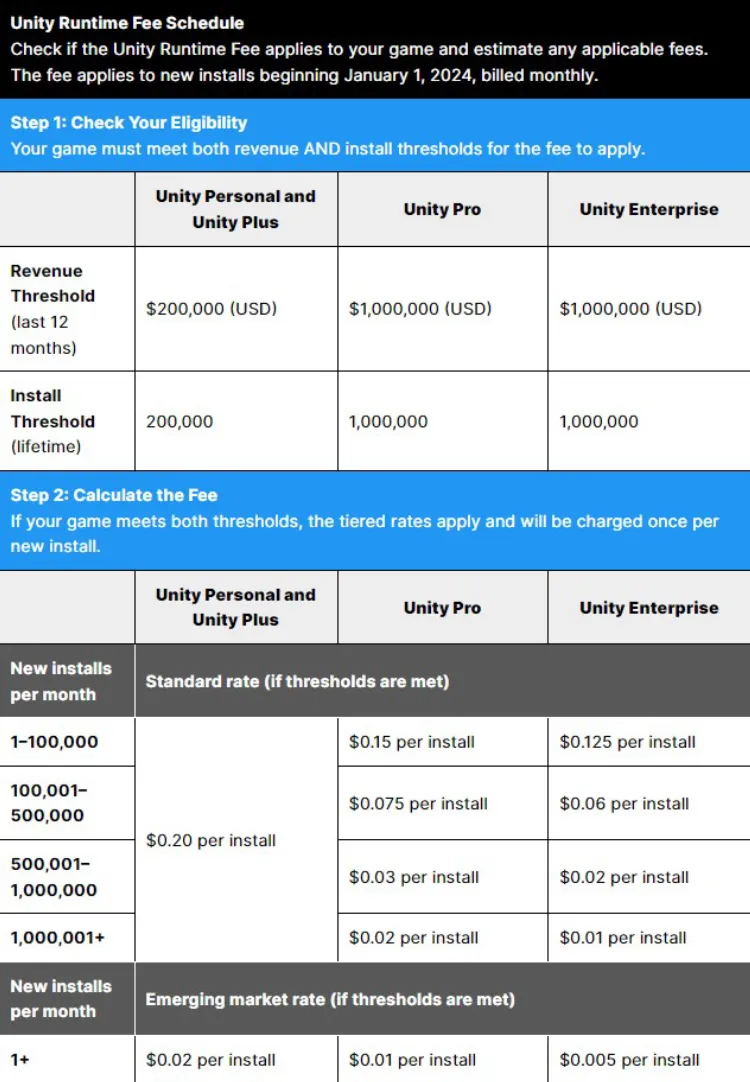Unity plans to charge developers for players downloading and installing their games
Recently, Unity announced a series of changes to their business model that have sparked dissatisfaction among game developers.
In their official statement, the company revealed that starting from the next year, they will be charging developers for each installation of their games. This payment will be referred to as the Unity Runtime Fee. Initially, Unity had plans to charge developers a commission for each game installation by users. Additionally, the amount of this fee will depend on the level of subscription to Unity. Below, you can find more detailed information about the tariffs.

As evident from the provided data, the payment will be collected from developers after meeting the following conditions:
- For Unity Personal and Plus, it will amount to $200,000 in revenue over 12 months and 200,000 installations over the lifetime.
- For Unity Pro and Unity Enterprise, this fee will be $1 million in revenue over 12 months and 1 million installations over the lifetime.
It's also important to note that the fee will be applied even if a user uninstalls the game and later reinstalls it, as well as for the installation of demo versions and versions of games for Game Pass and PS Plus.
We chose to take this approach because every time a game is loaded, Unity Runtime is also installed. Additionally, we believe that the initial installation fee allows developers to generate a stable financial income from player acquisition, as opposed to a revenue share model.
This, of course, has sparked a wave of outrage among game developers, as it carries many risks for them. As noted by one of the indie developers, Rami Ismail:
Take note, gamers, the changes in Unity mean the following for you: demo versions of games may now pose risks for developers, games without DRM (copy protection) have also become risky for developers, bundle deals can also carry risks for developers, gift copies of games (gifts) may now also entail certain risks for developers, game updates may now present a risk for developers, as well as users playing on multiple devices.
In response to developers' feedback, Unity has decided to make changes to its strategy. According to the information, only the first installation of the game will now be taken into account, and demo versions will be excluded. Additionally, payment for games in Game Pass or PS Plus will be collected from those who manage these platforms, namely Microsoft or Sony.
While these changes may prevent negative reactions from game developers, there is a possibility that various indie projects may now face difficulties when adding their games to services like Game Pass. In this case, it will depend on the willingness of the owners of such platforms to pay Unity's commission.
Meanwhile, as developers began discussing the possibility of switching to other game engines or even boycotting Unity, competitors from Unreal Engine have decided to take advantage of this situation. They have reminded developers that their royalty system, which amounts to 5%, only comes into effect after the game reaches a total of $1 million in revenue. Furthermore, if the game collects less than $10,000 in a quarter after reaching that milestone, developers do not need to pay royalties for that period.

Kommentit